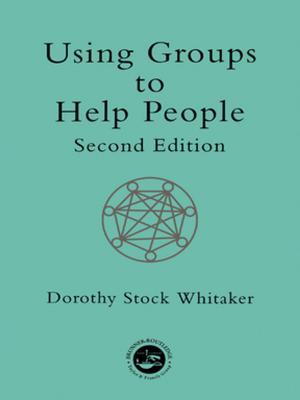| Author: | ISBN: | 9781351894463 | |
| Publisher: | Taylor and Francis | Publication: | December 5, 2016 |
| Imprint: | Routledge | Language: | English |
| Author: | |
| ISBN: | 9781351894463 |
| Publisher: | Taylor and Francis |
| Publication: | December 5, 2016 |
| Imprint: | Routledge |
| Language: | English |
Artisans played a central role in the European town as it developed from the Middles Ages onwards. Their workshops were at the heart of productive activity, their guilds were often central to the political and legal order of towns, and their culture helped shape civic ritual and the urban order. These essays, which have all been specially written for this collection, explore the relationships between artisans and their towns across Europe between the beginning of the early-modern period and the end of the 19th century. They pay special attention to the processes of economic, juridicial and political change that have made the 18th and early 19th centuries a period of such significance. Written by leading historians of European artisans, the essays question the myths about artisans that have long pervaded research in the field. The leading myth was that shared by the artisans themselves - the myth of decline and the belief in each generation that artisans in the past had inhabited a better age. These essays open up for debate the nature of artisanship, the way economic change affected craft production, the political role of artisans, the cultural identification of the artisans with work and masculinity, and the way changing urban society and changing urban structure posed threats to which the artisans had to respond.
Artisans played a central role in the European town as it developed from the Middles Ages onwards. Their workshops were at the heart of productive activity, their guilds were often central to the political and legal order of towns, and their culture helped shape civic ritual and the urban order. These essays, which have all been specially written for this collection, explore the relationships between artisans and their towns across Europe between the beginning of the early-modern period and the end of the 19th century. They pay special attention to the processes of economic, juridicial and political change that have made the 18th and early 19th centuries a period of such significance. Written by leading historians of European artisans, the essays question the myths about artisans that have long pervaded research in the field. The leading myth was that shared by the artisans themselves - the myth of decline and the belief in each generation that artisans in the past had inhabited a better age. These essays open up for debate the nature of artisanship, the way economic change affected craft production, the political role of artisans, the cultural identification of the artisans with work and masculinity, and the way changing urban society and changing urban structure posed threats to which the artisans had to respond.















